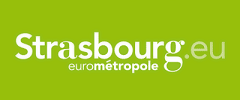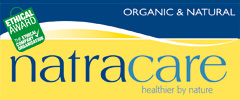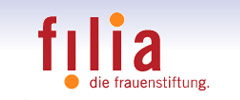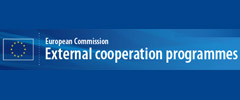WECF-Training: Construction of solar collectors, Georgia, 10-13 May 09
Cold winters are very common in almost the whole EECCA region, but sun radiation is high and often there is a lot of sun in winter time as well, that can be used by solar collectors. For that reason, WECF and its partners are working on a more advanced but still affordable self-made solar collector
06.07.2009 |Regina Drexel

Internship at RCDA: students from France in Georgia; French interns at RCDA: Benjamin, Teddy, Pascal, Gerhard (Solar Partner), Harivel
Nearly the whole EECCA region has a very high potential for use of solar energy. Solar collectors are a simple and effective way to substitute expensive and polluting fuels for heating water. Solar collector self-made models used by WECF partner NGOs so far are usually very simple models which work well in summer period but do not work in winter time due to little effectiveness and lack of protection against freezing. Nearly the whole EECCA region has cold winters, some regions even very cold, but sun radiation is high and often there is a lot of sun also in winter time, that could be used by solar collectors.
For that reason, WECF and its partners are working on a more advanced but still affordable self-made solar collector. So, WECF conducted a training on self-construction of solar collectors in Georgia from 10 to 13 May, 2009. The aim of the training was to find a solar collector model for use mainly in rural areas, that can be easily constructed with locally available materials and is affordable at the one hand but effective enough also for use in winter time. Beneficiaries can be private households as well as public buildings, e.g. schools and kindergartens.
From February to June 2009, four students from France (Université de Savoie Annecy / Annemasse) worked with the WECF partner organisation RCDA (Rural Communities Development Agency) in Misaktsieli, Georgia, on development of simple but effective solar collectors and other solar installations especially for rural areas (solar fruit driers, solar water distillator / milk pasteurizer, solar oven...). Before their stay in Georgia, they were prepared for this special task by a one-week-training at the WECF partner company Solar Partner Sued in Germany.
The students followed a University licence for Mastering Renewable Energy– Electricity at the Université de Savoie, based in Annecy, and conducted in partnership with lycée Jean Monnet in Annemasse. They benefited from a bursary « Explora” financed by the Rhône-Alpes Region. The Univesity in Annecy also subsidised this mission : the students received 125€ each.

Participants and trainers at the solar collector training in Georgia, with copper collector
Prior to the WECF solar collector training in Georgia, the French students together with RCDA already developed and built two solar collectors (area each 2 m2), one metal plate collector (iron) and one plastic tube collector.
Training: construction of Solar Collectors in Misaktsieli
Based on the results of research from the French interns, WECF conducted a 4-day training at the RCDA centre in Misaktsieli together with Gerhard Weiße from Solar Partner Sued (10-13 of May, 2009). Participants were technical experts from 7 NGOs from Georgia and Ukraine. Representatives of local solar business (2 companies from Tbilisi) were also invited.
During the training, participants got detailed information about the principles of solar collectors and their installation. They learned how to construct on their own a solar collector and a heat exchanger tank with materials from the local market.
The different models of solar collectors at RCDA were examined and optimized by the trainers. The result of the training week were two solar collectors. The materials chosen were copper and plastic. As the construction principle for all plate collectors from different metals is very similar, we chose copper as the most effective material which is also easy to handle (especially compared with aluminium).

left: copper collector, right: plastic collector
Additionally, a heat exchanger was installed into a 250 l tank so the collectors could be connected to that tank and can work all year using anti-freeze.

Water tank with heat exchanger
Furthermore, during the training, participants learned about other means of using solar energy in rural areas like fruit driers, solar water distillator, milk pasteurizer, solar oven.

Solar oven (RCDA)
Conclusion
The results of the seminar and the discussions between the participating NGO representatives and experts about the needs of the target groups showed that the best solution for self-construction of solar collectors in Georgia is to use iron or copper (in Georgia, copper is quite expensive, so iron would be the more economic solution). The only heat-resistant plastic tubes available in Georgia are expensive and very hard to work with because they are not flexible. This might be different for other countries where other kind of plastic tubes are available.
Combined with a heat exchanger tank, which costs not significantly more than a "usual" tank, the metal plate collector will be sufficient to provide a family with warm water and can be used even in winter time (depending on the weather conditions, of course).
Four kinds of collectors of an area of 2 sq metres are on display right now at the RCDA demonstration centre each with the following metals: copper, iron, aluminium, plastic.

Installation of 2 collectors (iron, plastic) on the roof of RCDA ecosan toilet / shower
Following the training in Georgia, a second training on the same issue took place in Lore region, Armenia, from 2 to 4 of June. With the help of the French interns, RCDA gave the results of the first training to Armenian partner NGOs.
Solar collector construction manual will be soon available for download here.
Related News
Meet the Winners of the Gender Just Climate Solutions Award at COP24
On the 70th anniversary of the Universal Declaration of Human Rights, we awarded Gender Just Climate Solutions Winners at the climate negotiations in Katowice, Poland
11.12.2018
SB48 Side Event “Access to climate finance for non-state actors”
WECF to launch energy community study and to introduce gender-just energy cooperative model in Georgia
11.05.2018
Priority Actions to Increase Access to Climate Finance for Non-State Actors
SB48 side event: 7 May 2018 at 16:45 CEST in room 181, UNFCCC, Bonn
03.05.2018
Better energy efficiency in Moldova thanks to insulation of public buildings
Local authorities and WECF partner OA Colaborare cooperate to provide public buildings with proper insulation
18.12.2017
The Only Way to Honour the Dead is to Fight Like Hell for the Living!
Gender Day Action at the Climate Negotiations (COP23): Women's Human Rights and Environmental Defenders (WHRDs) Resist
15.11.2017







































